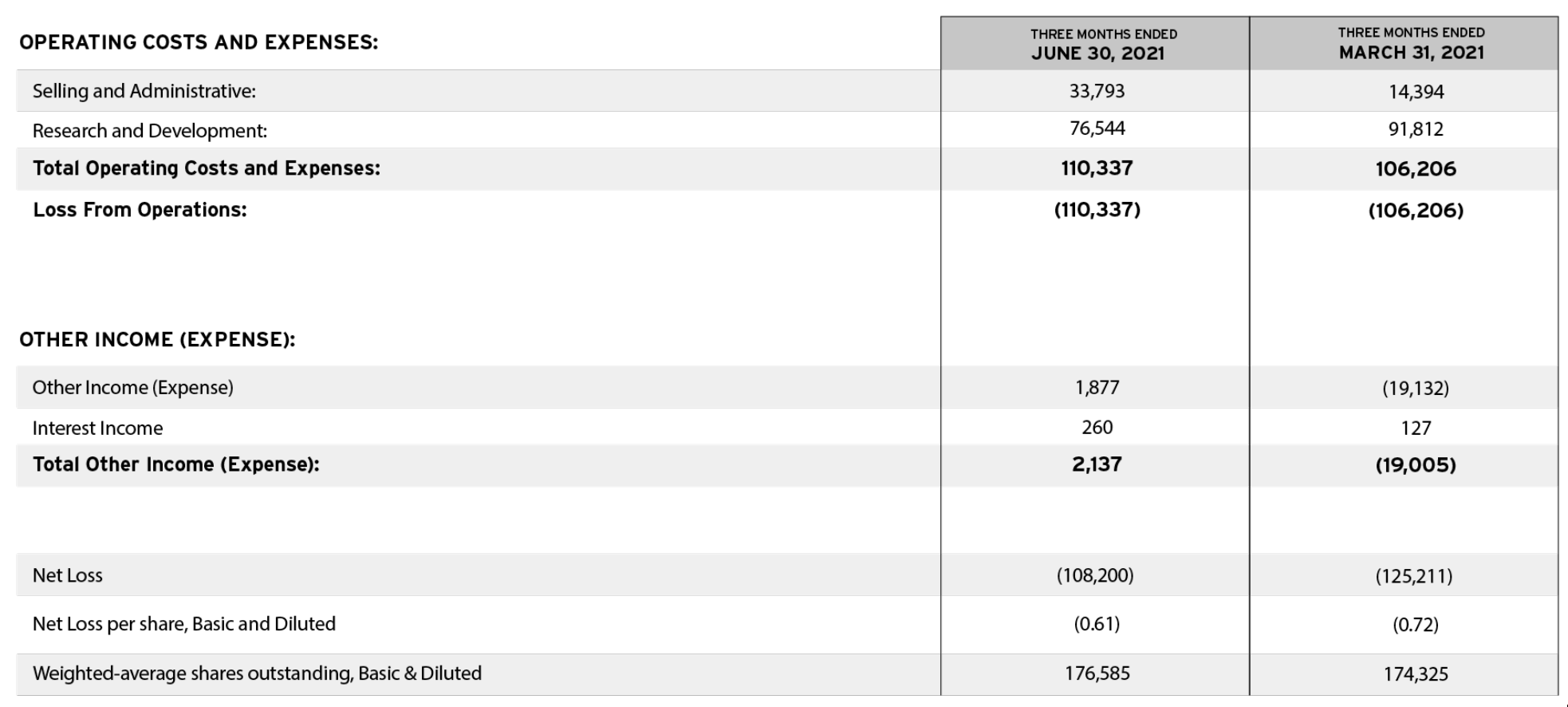- August 12, 2021
- by:
- in: Blog
Nigeria’s less than two-decade-old ecosystem is evolving fast. But behind the funding and legitimate hype, there’s without a doubt plenty of learning that needs to be done in running a startup. In retrospect, founders in Nigeria do tremendous work when you consider the kind of harsh market they operate in. They are deserving of all
Nigeria’s less than two-decade-old ecosystem is evolving fast. But behind the funding and legitimate hype, there’s without a doubt plenty of learning that needs to be done in running a startup.
In retrospect, founders in Nigeria do tremendous work when you consider the kind of harsh market they operate in. They are deserving of all the praise they get. However, some questionable antics require addressing.
There are instances when founders know their companies are dying but would rather sink with it (without having a plan) than let someone else lead. Or other instances where founders know there’s a need to hire someone as CEO to blitz scale their companies but would rather settle for mediocre growth.
Stories where startups take drastic actions to save or scale a company are few and far between.
Despite a relatively short time in the startup scene, Adia Sowho, one of the well-known operators around the region, has been fortunate to experience and live through one. Last year, she became the CEO of Thrive Agric, an agriculture fintech company, guiding it through a turnaround after the COVID-19 pandemic induced a crisis in the business.
Before that, she worked as the VP of Growth and managing director, Nigeria, for fintech platform Migo. And outside the startup scene, she was the director of Digital Business at telecom operator 9mobile and is currently the chief marketing officer of mobile telecoms giant MTN Nigeria.
TechCrunch sat down with Sowho to share her experience working as a telecom executive, an operator with Thrive Agric and Migo, her view on how operators can work with founders, her decision to leave the startup scene and how her new journey is all according to plan.
What was your career like before becoming an operator in tech?
I had a long career across different parts of the mobile telecom space, specifically, with my last role being responsible for digital business. Digital business in a telco is essentially that arm of the telco that interfaces with third parties, often startups who have products more innovative than what the telco might have, in its current portfolio, and of interest to customers.
I got that department in its inception at 9mobile and grew it to a $100 million revenue aspect of the business. In doing that, I interacted with various sectors and launched a couple of music apps, gaming platforms, content platforms from like, short-form two minutes to longer forms.
We also did mobile advertising, the Internet of Things and financial services. But the telco industry is very massive, and the infrastructure is very old and difficult to shift into the internet economy. After that, I was looking for something else to do and having been bitten by the startup bug because my team was essentially the internal startup to 9mobile, I was looking for more of that excitement. And I guess I wanted to put my money where my mouth was.
So, why Migo, since a lot of startups existed at the time? I mean, we’re talking early 2018 here.
After 9mobile, I decided to go to Migo because I felt like financial services was critical and the bedrock of a holistic financial system with four elements — savings, credit, insurance and payments.
So in the Nigerian tech scene, a little bit was happening in savings, but to me, it was not a priority in a country that didn’t have a massive GDP per capita. This period was also still in the early stages of Flutterwave and Paystack and we had just started waking up to payments in a big way.
But there was very little happening in credit. I could walk into my bank and get a loan only if the company I worked for was known to that bank, and the bank had some visibility of that company’s finances as well. It was still tough to access credit. That’s why I joined Migo, because I felt like if you don’t solve your financial services problem, you can’t really do anything else. After all, it’s the underlying infrastructure that everything else needs.
How was your experience at the fintech startup?
When I joined, the team was very small at that time. Everyone could fit into one conference room, and then, I started building out the Nigeria business as the managing director.
I hired the team to start delivering products through partnerships and got the userbase to over a million users before leaving. So that was definitely a fun but trying experience. It taught me a lot about myself, and I definitely got first-hand experience of the challenge of building and leading a startup in emerging markets.
Did anything transpire within the startup that led to you leaving?
Let’s say I wanted to start a new journey. I mean, look, COVID hit a lot of businesses hard, and in your startup journey, you have to make some directional changes.
Migo has now more cleanly focused on embedded finance, which required making some changes within the organization, and that happened with COVID. It just seemed like a good time to leave, which I did, plus I might have been a bit burnt out, as I was exhausted when I left.
But you joined Thrive Agric four months after leaving?
Yeah, it was a few months after, that’s interesting [laughs]. So I mean, we’ve talked about how I was drawn to financial services because that’s sort of fundamental to economic development. With Thrive Agric, I definitely felt the same: we eat food. There are millions of smallholder farmers in Nigeria. What Thrive does in consolidating their output to be sold to local off-takers is a critical aspect of Nigeria’s future.
It’s food security. If you sit down and think about the Global Sustainable Development Goals, food security shows up somehow, right? So for me, even though I was still trying to rest, I couldn’t say no. It felt like a call to service to help them figure out what was wrong and try to get them out of the crisis; I really didn’t want to see a company like that die.
I remember it was a rough period for the company. How challenging was it, as it was a new experience for you?
Oh, it was pretty tough. I don’t think I’ve apologized for anything I’ve ever done in my life as much as I did that period. It was definitely intense to be confronted with the rage of thousands of people at the same time. It’s a one-of-a-kind experience. It definitely wasn’t enjoyable, but then again, everybody was under pressure.
The rage was definitely understandable. I couldn’t challenge or argue with it. It was valid, but at the same time, so many companies worldwide suffered due to the pandemic. Sure, Thrive could have handled things better; obviously, that’s why I joined.
But it was a tough job keeping customers happy and protecting the founders because there were many people ready to take some very extreme measures, as you can imagine, but we managed to all largely survive it.
In a nutshell, how did you bring the company out of the crisis it was facing?
When I stepped in, I was extremely focused on addressing the problem. It took me a while to meet the whole company because I was keenly focused on the specific teams, people and resources required to solve the problem first.
It was only after creating a plan that I could start looking at the rest of the company to address what systemic issue led to the problem. There’s no chronic problem in a startup that is not led or supported by something systemic within the startup.
Let’s talk about the problem. What exactly happened?
Essentially, the challenge with Thrive was a timing issue. Thrive works with the farmers to grow crops. They deliver fertilizer and seeds, and the farmers grow the crops. We support farmers during harvest and manage them getting the harvest to the warehouse. Then we take the goods from the warehouse into the market and sell them to our clients.
So COVID prevented farmers from accessing the farms. It prevented us from accessing the markets to sell the goods. It prevented us from going to the farms to gather the produce and take them to sell.
During the lockdown, you can’t do any of that because you can’t move. You can’t deliver seeds to the farmers; the farmers cannot plant, you cannot get people to support them with harvest, you cannot receive the goods. So the fundamental ability for the company to make money was compromised.
When that happened, it wasn’t a problem anybody had seen before. The team didn’t know how to react and did not pass on the bad news to subscribers. And bad news is always tough to deliver. What it created was this timing issue and that’s why though we were able to pay back, we did with delay. We wanted to honor the obligations to subscribers. The business model does work. It’s just that Thrive wasn’t prepared for a pandemic, but eventually, we’ve been able to catch up a little bit.
Your case with Thrive Agric is quite unique because you were brought as someone with managerial experience to help the company. That’s not the case generally within the ecosystem. Some founders rarely want to relinquish their position even if the company is going downhill. Why do you think this is so?
I think part of it is because startup culture comes from Silicon Valley and startup culture there prefers to rely on less-experienced people at the beginning. And to be honest, experience and innovation are not comfortable bedfellows because when you have experience, you will lean on what is tried and tested. When you’re trying to be innovative, you are throwing away what is tried and tested.

Adia Sowho (Ex-CEO, Thrive Agric; CMO, MTN Nigeria)
So essentially, the challenge that African founders now have is that we have to find a way to localize that context. But going to my first point, we can also see that Google and Facebook made changes when necessary. With Facebook, it was Sheryl Sandberg. Google did with Eric Schmidt. Maybe our startups have to do it a little bit earlier and a little bit more informally first, and that’s fine because of the lack of infrastructure existing in the country.
Experience helps you know where someone may have tried something or made a mistake before. That’s why my joining Thrive made sense. I’m happy to see that there is more interest in welcoming people with experience and quite a few more people feel emboldened to make the jump into startups.
So I believe that the trend is changing, although it can be definitely difficult when you want a long career. To jump into the startup culture, you have to throw away many comforts and embrace an extremely dynamic environment.
How would you say Thrive Agric is faring now?
Because I took a systemic approach to manage the team and the startup, I believe they are on better footing. Now, the founders and the senior team can a little bit more comfortably see around corners. The only thing you can do with risk is to manage it or prevent it.
When I got into Thrive, I was highly focused on what went wrong, understanding the causality and retraining the team to better see around those kinds of corners. That work continues. I stay on as an advisor because I want to ensure the company’s continued success for the same reason I gave before: food security.
I mean, Thrive is one of three companies that the Central Bank of Nigeria is satisfied with giving support to deliver food security nationwide. It means that the sky is the limit in terms of growth because Thrive is aggregating 100,000 farmers in the country just this year. The growth potential for this company is astounding.
So, in all this, what does your experience at Thrive tell you about startups and the Nigerian tech ecosystem in general?
Startup life is hard in countries that are infrastructure rich. It is harder in countries that are infrastructure light. In Nigeria and Africa, that internally forces startups to build infrastructure that they don’t have. But the problem for some is that when they build it, they individualize it, which kind of sucks.
But at the same time, the low-hanging fruit around here is just amazing. I’m excited by the potential and possibility of creating a new version of what the economy can look like by tapping into the internet and connectivity.
So for me, there are definitely opportunities to support startups differently. I think maybe that’s going to be the focus of my work with the ecosystem going forward. Figuring out how to help the ecosystem build better products and run better startups based on my experience.
Since I can’t obviously go in and do that for everybody, I’ll try to figure out a way to share my knowledge at scale.
How will you do that now that you’ve left the startup scene and gone back to the corporate world with MTN?
Well, let’s talk about infrastructure. You know, if you think about your startup with MTN as a partner, what does the trajectory of that startup now look like? It’s massive. So that’s why I took this role.
I’m still doing a lot of startup ecosystem work. For me, there is a telco role in all future unicorn stories. That requires empathy on both sides to happen. It’s something I’ve talked about, written about, been working for years, just figuring out how to make these relationships work better. I guess that’s why, you know, a candidate like me was appealing to the company. I’m keen to go there and continue the same work at scale with the knowledge I have.








